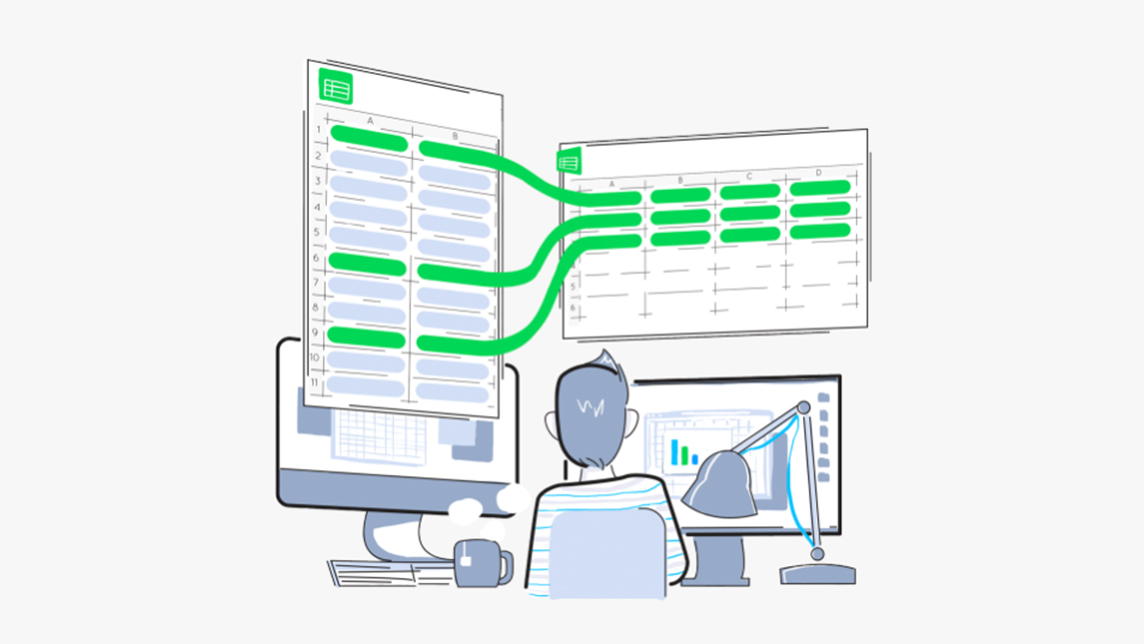Moving from Brazil to Spain in 2016 was probably the best thing that happened to the co-founders of Sheetgo. The relocation to Europe was made when the startup received pre-seed funding of over €150,000 from Spain’s Lanzadera Accelerator based in Valencia. Within two years, Sheetgo won awards for Most Scalable Product and Best B2B Enterprise Services at the South Summit 2018.
According to Virginia Rometty, CEO of IBM, which recently acquired cloud infrastructure player Red Hat for US$34 billion – the biggest tech M&A to date – most companies are realizing only 20% of the full benefits offered by the cloud. The untapped 80% is just waiting to be unlocked by wider adoption and innovative use of cloud applications to drive business growth.
The idea to link up data flow across in-house spreadsheets was first mooted in 2010 by Brazilians Yannick Rault van der Vaart and Jonatan Gomes da Silva. The co-founders created an Enterprise Resource Planning (ERP) system using Google Sheets as a hobby. The project was later presented and validated at Mountain View in California by several tech companies including Google.
The duo was later joined by co-founders Chad Pittman and Rafael de Alemar Vidal, who took on the core task of connecting spreadsheets online and developing a new product called Import Sheet in 2015.
Sheetgo was established in January 2016, after a name change when the team decided to work full-time to launch the project. Sheetgo was first talented spotted by Brazil’s Wow Aceleradora. But it was the pre-seed funding from Lanzadera that kickstarted the formation of Sheetgo and basing its HQ in Valencia.
Growing B2B SaaS market
The adoption of online spreadsheets in large companies and in countries such as Spain still remains low at the moment, says CEO Rault Van der Vaart. “It was not plain sailing from the start, however much of a no-brainer such an application may seem now.”
He adds: “The main risk when we started was that Google Sheets might not catch on, as it was not yet widely utilized. We also had problems creating and managing our startup in Spain, though we see that there is ever more assistance available."
Spreadsheets are among the most widely used software in business for data analysis and data storage worldwide. However, inefficiencies and errors often occur due to manual data inputs and updates. Such flaws, inherent in the management of traditional spreadsheets, are estimated to cost businesses billions of dollars annually.
Perhaps the infamous “London Whale” trading debacle in 2012 could have been avoided if automated spreadsheet functions were used. According to reports, a London-based quantitative expert had created a new value-at-risk (VaR) model that operated through a series of Excel spreadsheets, where data was manually copied and pasted from one spreadsheet to another. It was found that a copy-and-paste mistake that was made at JP Morgan’s Chief Investment Office was a key contributor to the bank’s trading losses of over US$6 billion in 2012, the first of its kind in the banking industry.
In a 2017 report, data analytics firm Alteryx Inc revealed that €55 billion are wasted in Europe every year by advanced spreadsheet users, who spend an average of nine hours per week on manual repetitive tasks and manipulation of data. A total of two billion hours spent on duplicated work was estimated to cost businesses €55 billion annually.
Sheetgo aims to change all that. Its cloud SaaS will enable clients to connect multiple spreadsheets and facilitate automatic data updates and workflows across departments and geographical locations. As cloud use in the office becomes second nature, the SaaS applications will also become integral parts of the daily operations in all types of organizations. Sheetgo also works with Google Sheets and is ranked as one of the top developers in the Google eco-system.
Today, Sheetgo is used by prominent clients like Google, Harvard University and Uber. Backed with less than €900,000 funding since 2016, the 14-strong team already services over 500,000 users based in more than 100 countries.
















